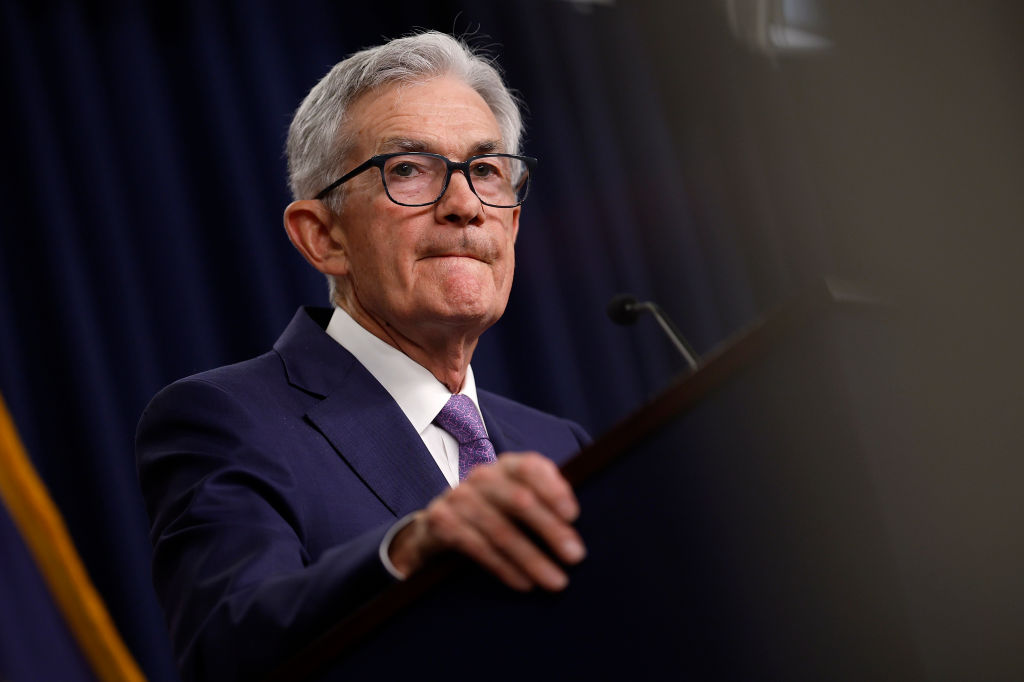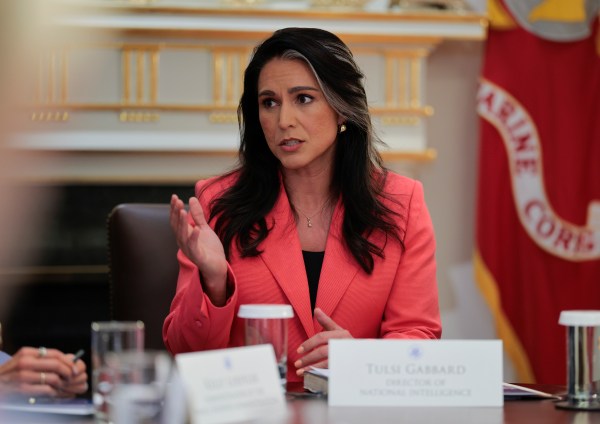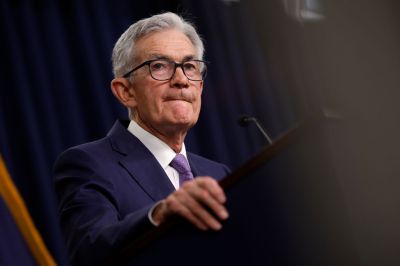Happy Thursday! It was a big week for D.C. types in sports: The Republicans shellacked the Democrats in the annual Congressional baseball game on Wednesday; Kent Lassman, president of the D.C.-based Competitive Enterprise Institute, swam the English Channel on Tuesday; and The Dispatch played another interoffice softball game, the outcome of which is redacted.
Quick Hits: Today’s Top Stories
- Hezbollah—an Iranian-backed terrorist group in Lebanon—fired more than 215 rockets, missiles, and drones at northern Israel on Wednesday in its largest single-day barrage since October 7. There were no reported injuries from the projectiles, which triggered air raid sirens deep into Israeli territory, but some started fires. The attacks followed an Israeli strike that reportedly killed a top Hezbollah commander, Taleb Sami Abdullah, and three other Hezbollah fighters in southern Lebanon on Tuesday.
- A Russian missile strike on Wednesday that damaged an apartment complex and administrative building in Kryvyi Rih, a city in southern Ukraine, killed nine people and injured 29 others, according to local authorities. The strike came after an overnight barrage of missiles and drones on Tuesday night that Ukrainian air defenses—freshly replenished by Western aid—largely intercepted, shooting down 29 out of 30 projectiles, according to the Ukrainian military. The Biden administration is reportedly planning to send a second Patriot missile defense system—an advanced weapons system capable of shooting down Russian hypersonic missiles—to Ukraine in the coming weeks, after supplying the first in late 2022.
- Four Russian navy vessels—including a nuclear-powered submarine, an oil tanker, and a tug boat—reached Cuba on Wednesday to participate in planned military exercises with the allied country. “Russia’s deployments are part of routine naval activity which pose no direct threat or concern to the United States,” a U.S. Northern Command spokesperson told The Dispatch Fact Check. Meanwhile, the Biden administration announced a new round of sanctions targeting individuals and entities supporting Russia’s war effort in Ukraine, including measures targeting foreign banks working with sanctioned Russian entities.
- The Consumer Price Index (CPI) held steady in May, the Bureau of Labor Statistics reported Wednesday, with prices remaining essentially unchanged from April and rising 3.3 percent annually, roughly matching economists’ expectations. By comparison, the CPI increased 0.3 percent month-over-month in April and 3.4 percent year-over-year. The report—the first month of functionally flat prices since July 2022—marked progress on inflation, but the Federal Reserve decided at its meeting on Wednesday to keep interest rates the same, penciling in just one rate cut this year, down from the three predicted at its March meeting.
- The American Civil Liberties Union (ACLU), along with a coalition of migrant advocacy law groups, filed a lawsuit on Wednesday against the Biden administration over President Joe Biden’s recent executive action to block migrants from seeking asylum at the southern border. “We are challenging President Biden’s executive action because it's flatly illegal and inconsistent with the asylum laws that Congress passed decades ago,” Lee Gelernt, an ACLU attorney, said yesterday.
- The House voted 216-207 on Wednesday to hold Attorney General Merrick Garland in contempt of Congress for not releasing the subpoenaed audio tapes of special counsel Robert Hur’s interviews with Biden as part of his investigation into the president’s handling of classified material. All Republicans but two voted in favor—with one voting against and another not voting. “It is deeply disappointing that this House of Representatives has turned a serious congressional authority into a partisan weapon,” Garland said in a statement. The Justice Department has released written transcripts of Biden’s interviews with Hur, but the president asserted executive privilege to block the release of the audiotapes. Garland is now the third attorney general to ever be held in contempt of Congress.
- Delegates to the annual meeting of the Southern Baptist Convention (SBC)—the largest protestant Christian denomination in the country—voted on Wednesday in favor of a resolution opposing in vitro fertilization treatment, arguing it “routinely generates more embryos than can be safely implanted, thus resulting in the continued freezing, stockpiling, and ultimate destruction of human embryos.” Earlier on Wednesday, the denomination narrowly rejected a measure to enshrine a ban on female pastors into the convention’s constitution. More than 60 percent of the delegates voted in favor of the ban, but the measure failed to clear the two-thirds majority threshold needed to pass. The SBC’s doctrinal statement already restricts the office of pastor to men.
- Jerry West, Hall of Fame point guard for the Los Angeles Lakers and later the team’s general manager, died on Wednesday at the age of 86. Key to the development of the NBA, West’s silhouette is immortalized in the league’s logo.
Has Inflation Turned a Corner?

For those weary of rising prices—which is, let’s face it, almost all of us—Wednesday’s consumer price index (CPI) report, which showed inflation virtually unchanged in May from the month before, might represent a small reason for celebration. But, as Federal Reserve Chair Jerome Powell cautioned on Wednesday after the central bankers met, “You don’t want to be too motivated by any single data point.” Way to rain on (the world’s tiniest) parade, Jay.
Powell and his colleagues met this week to assess progress in their yearslong battle against inflation. On the back of an encouraging CPI report, they nevertheless held interest rates steady, maintaining a target range of 5.25 to 5.5 percent as Wall Street prepared for just one cut later this year—a far cry from the six cuts the most bullish economists were expecting six months ago, or even the three cuts Powell signaled in March. It’s another sign of just how unpredictable the economy remains, busting through conventional wisdom and doling out humility and caution in spades.
Almost two years on from the 40-year inflation high watermark in June 2022—when the CPI hit an eye-watering 9.1 percent year-over-year increase—Wednesday’s reading on the index that measures the change in price for a basket of goods was less shocking. Consumer prices increased 3.3 percent from May 2023 and, for the first time since July 2022, the month-over-month change was essentially flat, increasing a mere 0.01 percent. That figure was 0.3 percent in April, and it reached a recent high of 1.2 percent in June 2022. But even though the rate of price growth may be slowing, that doesn’t mean the damage hasn’t already been done: Prices—as measured by CPI inflation—have increased a cumulative 22.7 percent over the past five years, from May 2019 to last month. On average, goods and services that cost $50 in May 2019—in those halcyon days when Lil Nas X’s “Old Town Road” was topping the Billboard charts—now cost $61.32.
The encouraging news is that many factors contributing to inflation—including the prices of new cars and certain groceries—have fallen over the course of the last month. Notably, the cost of motor vehicle insurance—which has grown 20.3 percent over the past year and been one of the major contributors to the bump in the overall index—actually dipped ever-so-slightly this month. “That was a potentially hopeful sign in the data that this unusually hot component of inflation is maybe going to start normalizing [inflation] more like we expect,” said Ernie Tedeschi, director of economics at Yale Budget Lab and former chief economist in the Biden White House’s Council of Economic Advisers. “I think it’s good news for consumers overall and I think it’s good news for the Federal Reserve, because it’s an inflation report that’s more in line with the [2 percent] inflation target.”
While the Fed won’t turn its nose up at encouraging CPI data, it’s a particular fan of the core Personal Consumption Expenditures (PCE) index—stripped of volatile food and energy prices—which it hopes to see increase at an annual rate of 2 percent. Core PCE was up 2.8 percent year-over-year in April, with the next report expected at the end of the month.
Despite the rosy inflation news, housing prices have been a thorn in the side of consumers, increasing 4.6 percent annually and 0.3 percent month-over-month in May. “That is really the place where we want to see disinflation,” said Tedeschi. “It’s important for housing inflation to come back down because that is really the last major component that is not back at target for the Fed.”
Even if the view of inflation is getting a little sunnier, such optimism has not resonated with the American public—largely due to those cumulative figures we pointed out a few paragraphs up. Inflation was the top concern among Americans the Pew Research Center polled late last month, with 62 percent of respondents saying it remains a “very big problem for the country.” Even if average hourly wage growth—up 0.4 percent month-over-month in May and 4.1 percent year-over-year—offsets part or all of the inflationary costs, people are still likely to be left dissatisfied. “Best explanation I’ve seen is people think wage growth is about their own merit,” Adam Shifriss, senior director of legislative strategy at the Committee for a Responsible Federal Budget (CRFB), tweeted Wednesday. “[But that] price growth is a government/macro problem.”
Conventional economic wisdom holds that an inflation cooldown—caused in part by the Fed’s high interest rates, which make borrowing more expensive and reduce consumer demand and business investment—could lead employers to cut costs. One way to do that would be to reduce their workforce, weakening the labor market at a macro level and putting downward pressure on wages and, in turn, prices. But when the Bureau of Labor Statistics (BLS) released its monthly jobs report late last week, it showed employers adding 272,000 jobs in May, dwarfing economists’ consensus expectation of 190,000.
But figures like that don’t necessarily mean the labor market isn’t loosening up. “Month to month, we have to take the numbers at face value, but it’s really the trend [of unemployment rate] that matters,” said Jim Caron, chief investment officer of the Portfolio Solutions Group at Morgan Stanley. “We’re maybe at the starting point of seeing some slight weakness [in the labor market] going forward.” Despite the surprising influx of jobs, the unemployment rate rose from 3.9 percent in April to 4.0 percent last month.
While ostensibly incompatible—how does unemployment rise as more jobs are created?—the figures are based on two different surveys. Nonfarm payroll employment comes from the establishment survey of workplaces, while the unemployment figure relies on the household survey, which is much more expansive. “If you look at the household employment survey, that paints a completely different picture [than nonfarm employment data],” Caron told TMD. “What you found was that there were more people leaving the labor force than actually entering the labor force.”
According to the household survey, the economy lost 408,000 jobs last month—a stark departure from the establishment survey—driving down the labor force participation rate from 62.7 percent in April to 62.5 percent last month. “Yes, people are working, but a lot of it is shifting towards part-time work and a lot of the better paying, higher quality full-time jobs are falling away,” Caron said.
Jason Furman, an economics professor at Harvard University and former director of the National Economic Council in the Obama administration, reached a similar conclusion. “The fact that the unemployment rate has been gradually rising for a year and a half is indicative of a labor market that is loosening and job growth that is slightly below steady state,” he tweeted last week.
Even with inflation seeming to cool as the job market eases ever so slightly—the ideal “soft landing” scenario—Rome wasn’t built in a day, and the Fed’s confidence isn’t restored in a month. “I think that they have the same mantra I do, which is that you never over-weight one month of data,” said Tedeschi. “But it’s a good start.”
Jerome Powell said Wednesday that members of the Federal Open Market Committee (FOMC) now predict just one rate cut before the end of the year. “But these projections are not a Committee plan or any kind of decision,” he added. Despite Powell’s signaling, Wall Street is still banking on two cuts before the end of the year.
Regardless of whether it’s one cut, two cuts, or no cuts, don’t expect any changes this summer. “If inflation continues to go down, at the earliest they would probably cut rates in September,” Caron predicted. “If inflation is not showing the progress that they want, it may be after the election.”
With voters focused on the economy, the Fed’s decision about whether to cut rates before the election is a charged one. “I think [Powell]’s going to do something to probably help the Democrats, you know, I think if he lowers interest rates,” former President Donald Trump claimed in February. Trump added that he would not reappoint Powell, who has served as Fed Chair since Trump nominated him in 2017.
Meanwhile, Democratic Sens. Elizabeth Warren of Massachusetts, Jacky Rosen of Nevada, and John Hickenlooper of Colorado penned a letter to Powell earlier this week warning him against holding rates steady. “The Fed’s Monetary Policy is … driving up housing and auto insurance costs—two of the key drivers of inflation—threatening the health of the economy and risking a recession that could push thousands of American workers out of their jobs,” they wrote. Warren is a member of the Biden campaign’s National Advisory Board.
Even if Powell faces accusations of being in the tank for one candidate or another, the Fed is but one ingredient in the complicated soup that is the U.S. economy. “Usually, I see an over-attribution of both blame and praise to the Fed,” said Norbert Michel, vice president and director of the Cato Institute’s Center for Monetary and Financial Alternatives. “I think the truth is somewhere in the middle.”
Worth Your Time
- The first graders who survived the Sandy Hook Elementary School mass shooting nearly 12 years ago are about to graduate high school. ABC News’ George Stephanopoulos interviewed six of the survivors about their experiences and their plans for their futures. “It’s still, even over 10 years later, just so difficult to try and dig up those memories because of how traumatic and painful it is,” said Ella Seaver, who was just seven when so many of her classmates were killed. She plans to become a therapist. “I’ve basically known that I wanted to be a therapist since I was eight, which was really only a year after the shooting,” Seaver said. “I have been in and out of therapy almost my whole life, especially after the shooting, and it’s really just helped me cope and helped me learn about myself, so I want to try and pay that forward and help people who have gone through gun violence, or even people who haven’t, who are just struggling in their daily life.”
- Writing for Project Syndicate, Zaki Laïdi—a professor at the Paris Institute of Political Studies—explored what French President Emmanual Macron was thinking when he called for snap parliamentary elections in the wake of the far-right National Rally party’s gains in the European Union parliamentary elections. “Although the French constitution permits Macron to dissolve parliament if he determines that he no longer has a political mandate, French presidents have rarely taken this step,” Laïdi wrote. “Coalitions are the rule in many European countries, but not in France. This is largely owing to the two-round voting system, which tends toward bipolarity, even though the broader political realm is tri-polar or even quadrupolar (extreme right, right, center, and left). To come to power in the French system, you need to broaden your base to win at the second round. … By surprising everyone with a snap election, Macron is hoping to shock the electorate out of its complacency about the far right and catch his opponents off guard. … Moreover, Macron is betting that if National Rally does come to power, voters will get a taste of what it truly represents before the 2027 French presidential elections.”
Presented Without Comment
Axios: White House Doesn’t Rule out Commuting Hunter Biden’s Sentence
Also Presented Without Comment
Also Also Presented Without Comment
Philadelphia Inquirer: Sen. John Fetterman Was Speeding and ‘At Fault’ for Crash on His 16th Wedding Anniversary
In the Zeitgeist
We’re pretty pumped for the new Paddington movie trailer, but probably not as pumped as the Twitter account that’s been photoshopping Paddington into different movies, every day, for more than three years.
Toeing the Company Line
- In the newsletters: The Dispatch Politics crew reported on the Senate contest in Nevada between Sam Brown and Jacky Rosen following Tuesday’s primaries, Scott outlined (🔒) the risks of U.S. industrial policy, Jonah argued (🔒) that government bureaucracy is increasingly incapable of completing even basic tasks, and Nick made the case (🔒) that both the Democratic and Republican reactions to the Hunter Biden verdict are wrong.
- On the podcasts: Jonah is joined on The Remnant by Ben Sasse, former Republican senator of Nebraska and current president of the University of Florida, for a discussion about higher education—and the College World Series.
- On the site: Tom Joscelyn dives into the Islamic State’s latest moves and they mean for the terrorist threat to the United States, while Kevin Vallier explains what fusionists can learn from the rise and fall of American integralism.
Let Us Know
Have you noticed any slowdown in price growth in your day-to-day life?








Please note that we at The Dispatch hold ourselves, our work, and our commenters to a higher standard than other places on the internet. We welcome comments that foster genuine debate or discussion—including comments critical of us or our work—but responses that include ad hominem attacks on fellow Dispatch members or are intended to stoke fear and anger may be moderated.
With your membership, you only have the ability to comment on The Morning Dispatch articles. Consider upgrading to join the conversation everywhere.